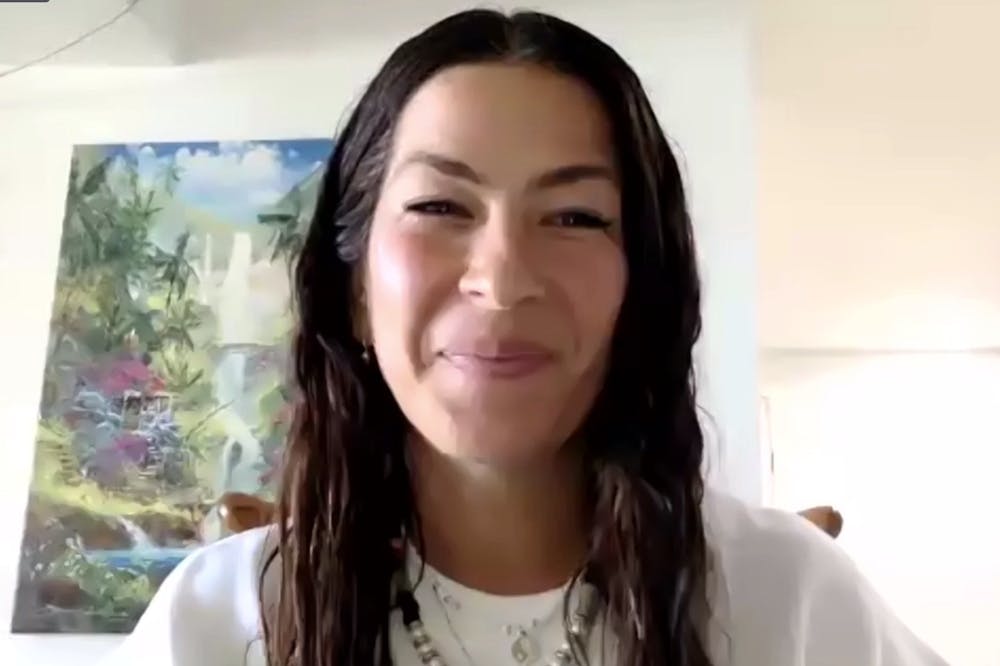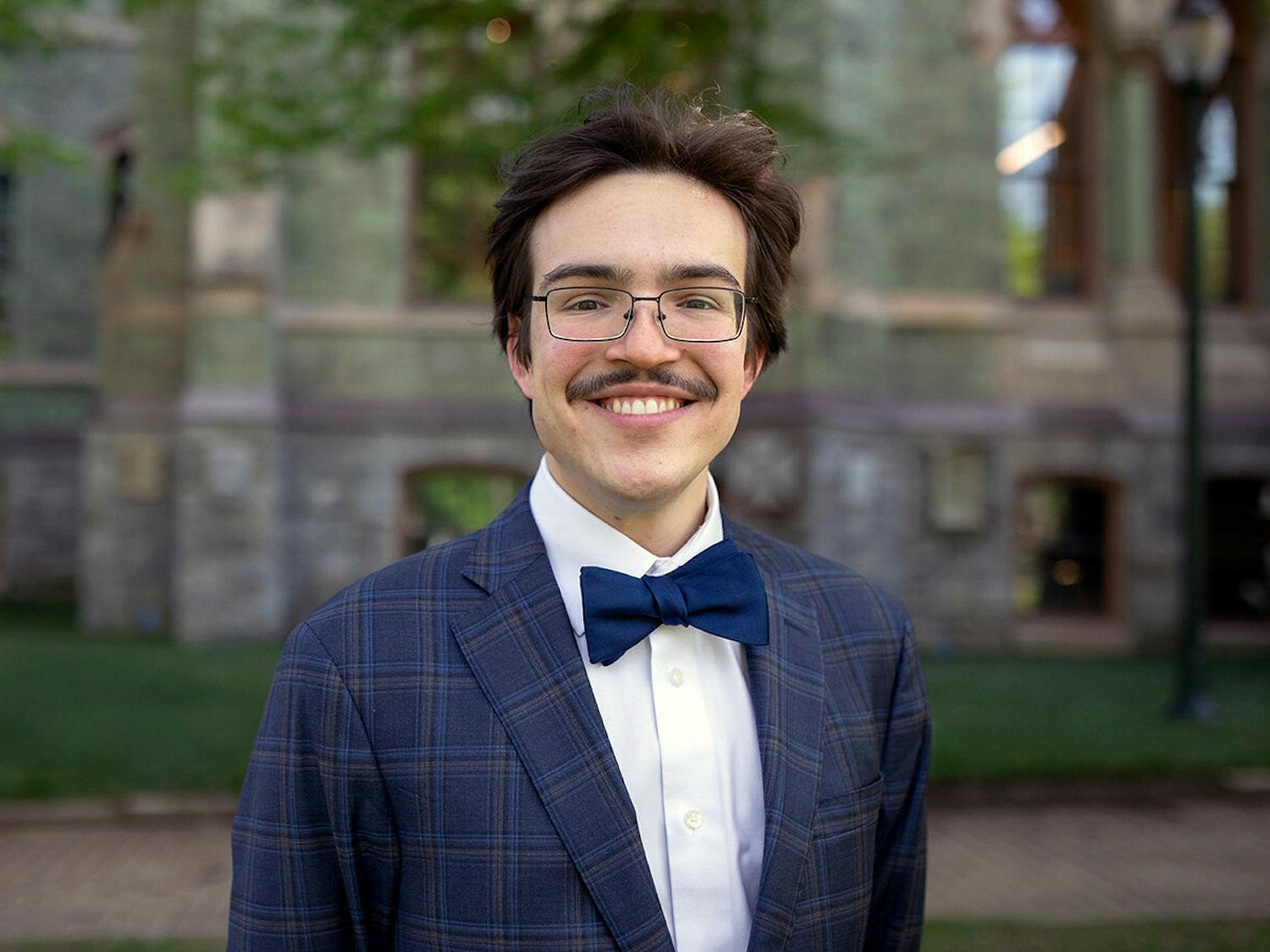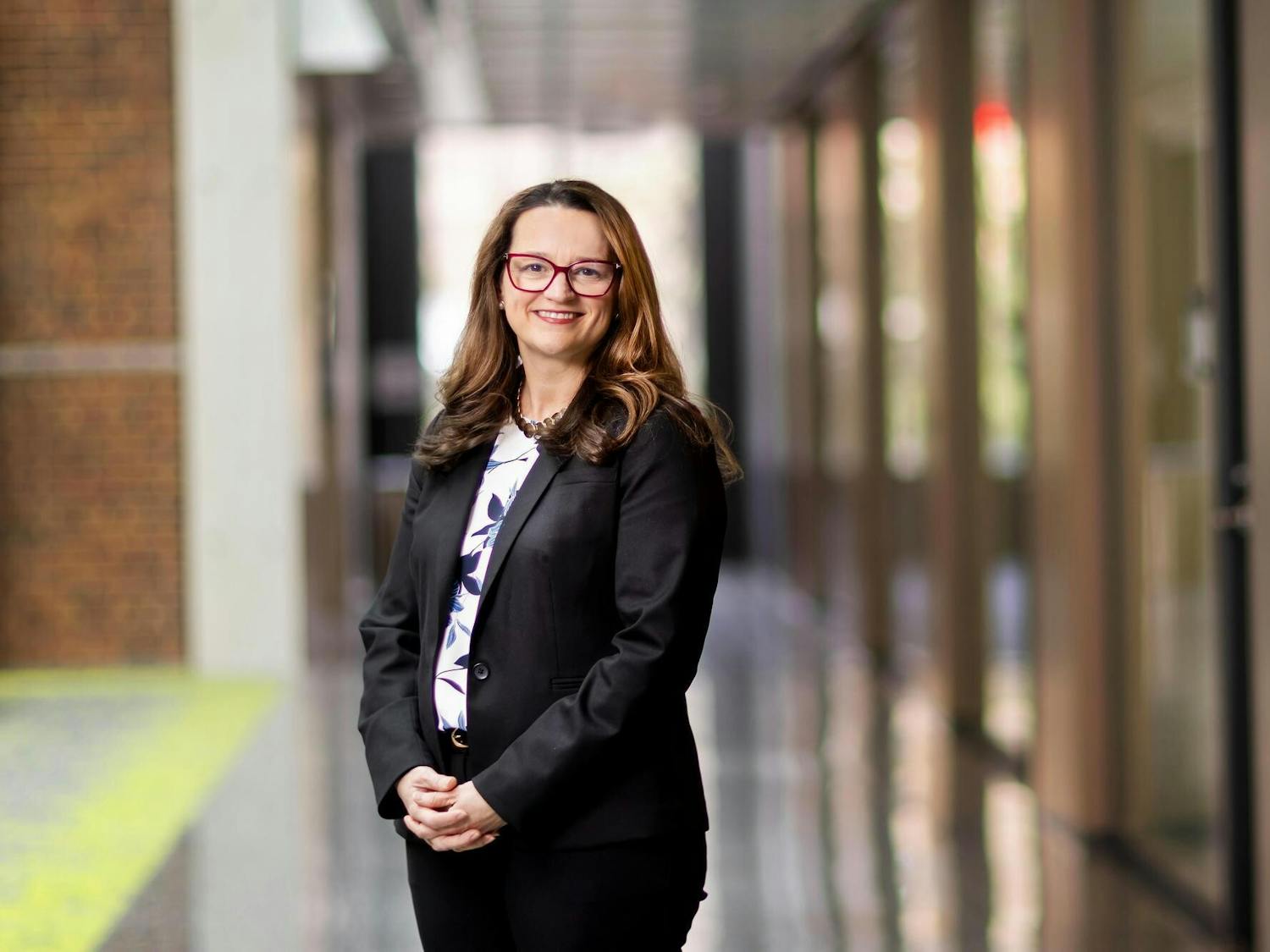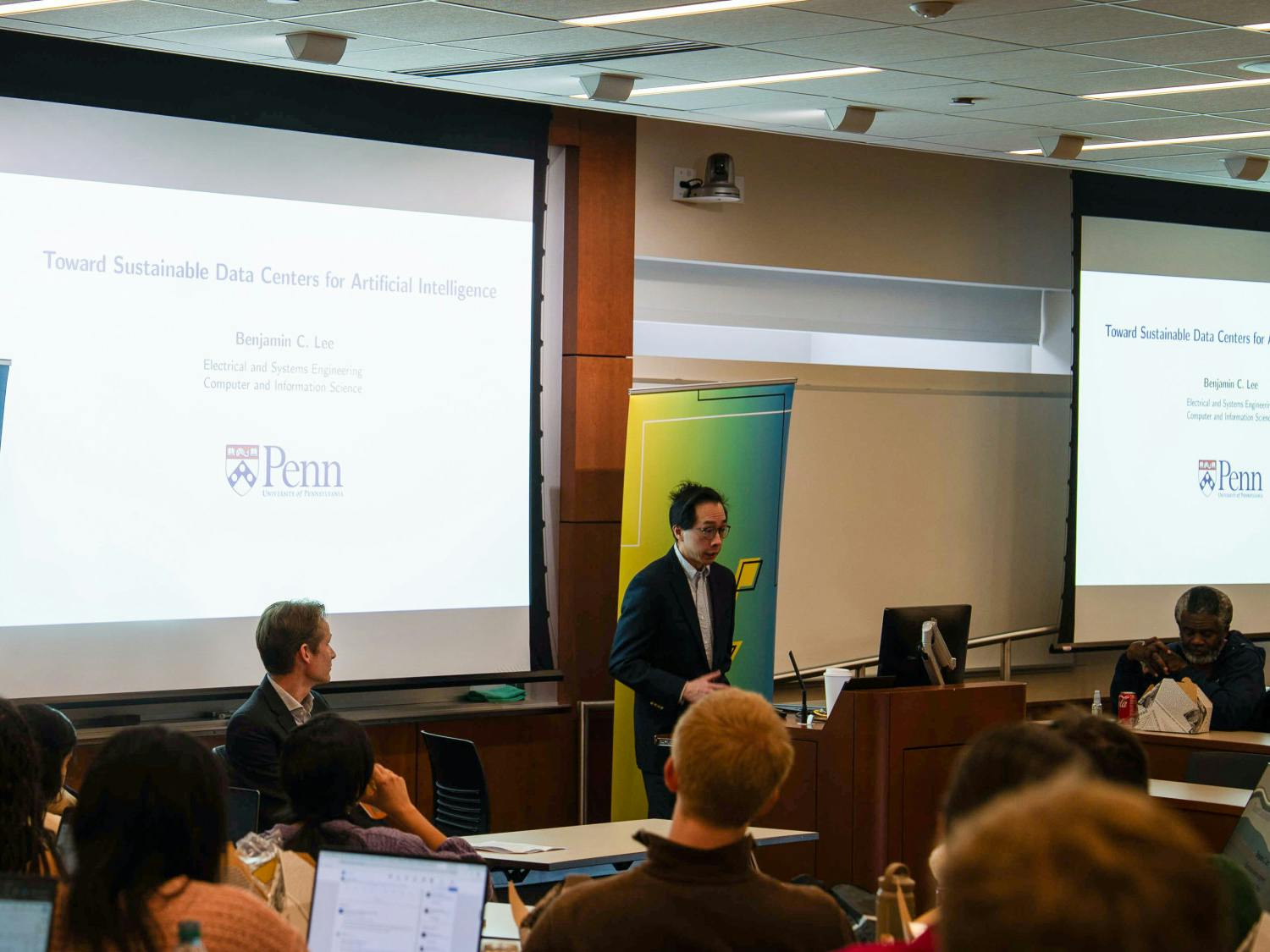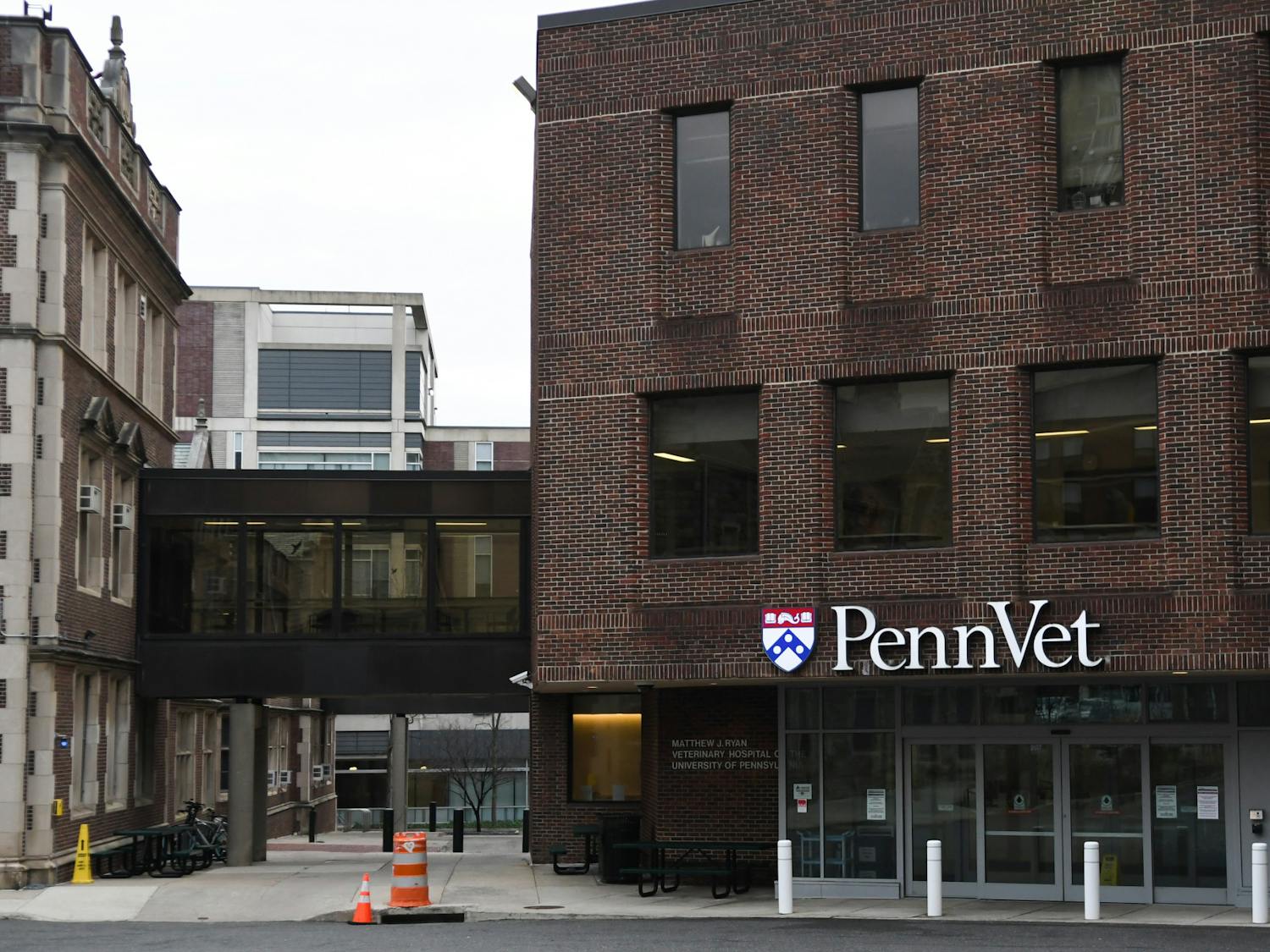Rebecca Minkoff, founder of her namesake women’s clothing and accessories brand, spoke about the challenges of adapting her business to the COVID-19 pandemic on Wednesday in a talk hosted by Wharton's Baker Retailing Center.
Minkoff described how her business went from mostly in-person sales — both in her own stores and wholesale to other stores — to completely e-commerce very quickly when the pandemic began shutting down businesses.
“I became chief influencer, content creator, copywriter,” Minkoff said. “We had to get really innovative.”
Minkoff added that she collaborated with other brands to cross-promote products and launch giveaways, which allowed the brand to gain new customers.
“The brand has done well because of Rebecca’s authentic personality which comes through on her social media platforms, which she has leveraged very well,” said Mina Fader, managing director of the Baker Retailing Center, in an email to The Daily Pennsylvanian.
The new norm of Zoom calls as the alternative to in-person meetings has impacted which items are purchased the most, Minkoff said. Her brand saw an increase in jewelry sales, a trend Minkoff attributes to the accessories being visible on a video conference. She has also seen a shift towards fashion-forward casual wear.
“I think you’ll see a lot of brands optimize for Zoom meetings — the nice puffy shoulder, the earrings, the necklaces,” Minkoff said.
Although she has seen notable increases in online sales, Minkoff said that customers still desire the in-person shopping experience.
RELATED:
Wharton MBA program will shift from hybrid to remote model for fall 2020
Penn students found club to boost representation of women in startups
“There is a community sense to shopping,” she said. “I don’t think brick-and-mortar is dead. It will evolve." She added that physical retail stores could provide hand sanitizer and invest in touch-free shopping technology.
Minkoff also used the opportunity created by this year's lack of traditional New York Fashion Week shows to innovate. Since traditional fashion shows were not possible because of the pandemic, Minkoff collaborated with Lowe's to host a rooftop Fashion Week presentation.
“When so many people pulled back this season, we went in," Minkoff said.
She also discussed how she is exploring adding a resale marketplace on the brand website where Rebecca Minkoff handbags can be resold. Anna Jellinek, a Wharton senior who works at the Baker Retailing Center, thought this was an especially interesting aspect of Minkoff’s talk.
“Understanding how designers and brands are starting to lead that charge was really great to hear,” Jellinek said. She noted that offering resale makes the products more budget-friendly and sustainable, both of which priorities for students.
Another innovation Minkoff's company is pursuing is the zero-inventory model, which allows for sustainable manufacturing through its partnership with the tech platform Resonance. Each garment is traced through the supply chain to ensure that products are made using eco-friendly and ethical labor practices. Minkoff's brand launched its children’s line, as well as some women's apparel, with the platform.
The products are manufactured with sustainability at the forefront, producing very limited fabric waste and avoiding harmful chemicals. The company also allows the brand to produce garments with inclusive sizing.
The Baker Retailing Center’s Executive Speaker Series will continue throughout the fall and is open to all Penn students.


